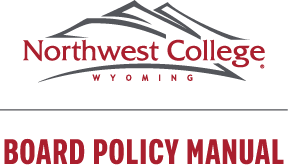To print please use PDF download.
I. Policy Statement
The College places importance on creating a secure environment for children and supports Wyoming State Law [W.S. 14-3-205] which requires any person who knows or has reasonable cause to believe or suspect that a child has been abused or neglected or who observes any child being subjected to conditions or circumstances that would reasonably result in abuse or neglect to immediately report it to the local child protective agency or law enforcement agency or cause a report to be made by contacting the campus designee as noted below.
II. Reporting Obligations
Pursuant to W.S. 14-3-206, to the extent available, the employee’s report shall include:
(A) The name, age and address of the child;
(B) The name and address of any person responsible for the child's care;
(C) The nature and extent of the child's condition;
(D) The basis of the reporter's knowledge;
(E) The names and conditions of any other children relevant to the report;
(F) Any evidence of previous injuries to the child;
(G) Photographs, videos or any other items with the identification of the person who created the evidence and the date the evidence was created; and
(H) Any other relevant information.
As a member of a public institution, all employees shall also notify the campus designee as soon as possible. The Human Resources Director and the Vice President for Administrative Services and Finance shall serve as the campus designees and shall also report pursuant to Wyoming State Law [W.S. 14-3-205] to the local child protective agency or local law enforcement agency and shall cooperate and coordinate during any subsequent assessment or investigation as necessary.
Any uncertainty in deciding to report suspected child abuse or neglect shall be resolved in favor of making a good faith report.
Immunity from Liability and Retaliation: Pursuant to Wyoming State Law [W.S. 14-3-209] any person participating in good faith in any act required or permitted by the child protection reporting requirements [W.S 14-3-201 through 14-3-215] is immune from any civil or criminal liability that might otherwise result by reason of action. Any employee who makes a good faith report shall not be subjected to retaliation in employment with the College.
III. Definitions
- Child
Any person under the age of eighteen (18) - Child Abuse
Inflicting or causing physical or mental injury, harm or imminent danger to the physical or mental health or welfare of a child other than by accidental means, including abandonment, unless the abandonment is a relinquishment substantially in accordance with W.S. 14-11-101 through 14-11-109, excessive or unreasonable corporal punishment, malnutrition or substantial risk thereof by reason of intentional or unintentional neglect, and the commission or allowing the commission of a sexual offense against a child as defined by law:
(A) "Mental injury" means an injury to the psychological capacity or emotional stability of a child as evidenced by an observable or substantial impairment in his ability to function within a normal range of performance and behavior with due regard to his culture;(B) "Physical injury" means any harm to a child including but not limited to disfigurement, impairment of any bodily organ, skin bruising if greater in magnitude than minor bruising associated with reasonable corporal punishment, bleeding, burns, fracture of any bone, subdural hematoma or substantial malnutrition;
(C) "Substantial risk" means a strong possibility as contrasted with a remote or insignificant possibility;
(D) "Imminent danger" includes threatened harm and means a statement, overt act, condition or status which represents an immediate and substantial risk of sexual abuse or physical or mental injury. "Imminent danger" includes violation of W.S. 31-5-233 (m) which addresses an adult who is driving or having control of a vehicle while under influence of intoxicating liquor or controlled substances with a child passenger in the vehicle.
- Neglect
Means a failure or refusal by those responsible for the child's welfare to provide adequate care, maintenance, supervision, education or medical, surgical or any other care necessary for the child's well-being. Treatment given in good faith by spiritual means alone, through prayer, by a duly accredited practitioner in accordance with the tenets and practices of a recognized church or religious denomination is not child neglect for that reason alone.

